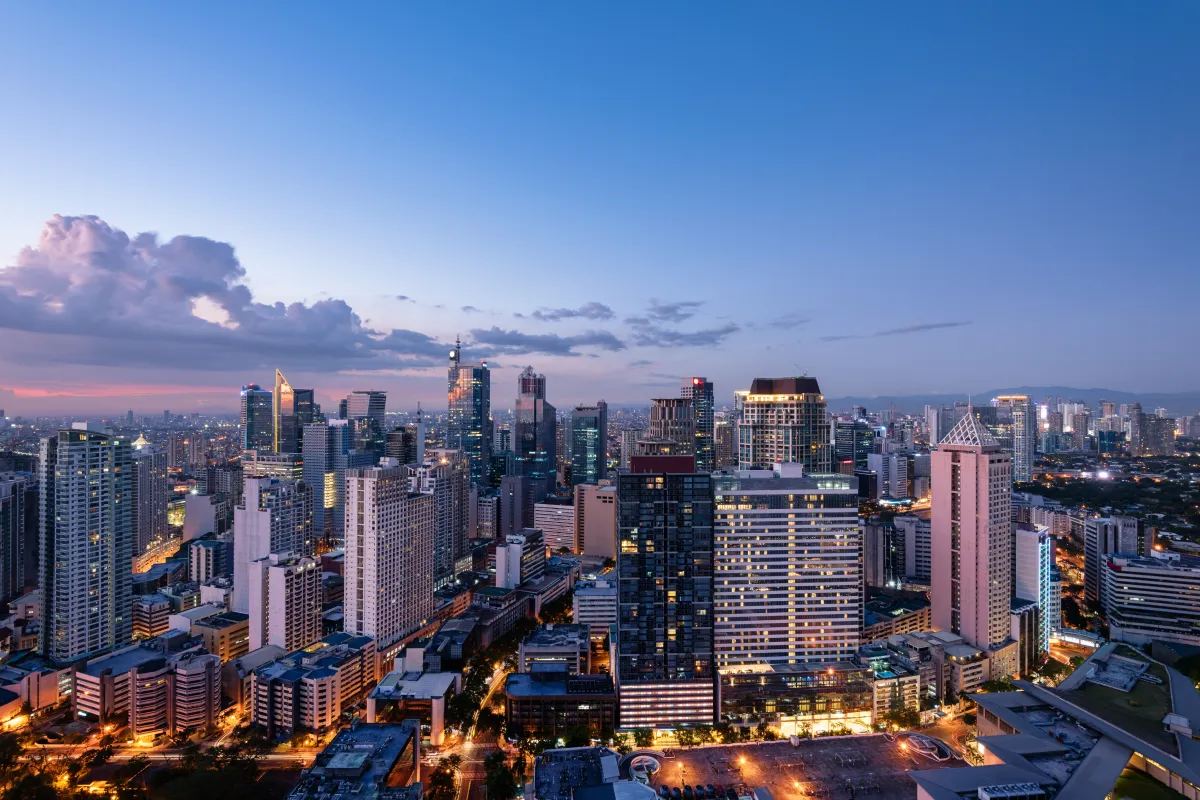
Countries
Employer of Record in the Philippines
We help you remain competitive for top talent and grow your global team quickly — no entity required

Philippines Fast Facts
Download our guide to hiring in Philippines.
Hiring in the Philippines
Thanks to its high-quality education system, the strong work ethic of its people, and its growing tech and creative sectors, the Philippines is a popular country for hiring, especially for highly skilled workers. However, it’s important to under its laws and business customs.
Employment relationships in the Philippines are governed by such laws as the Labor Code of the Philippines, various statutes, and judicial precedents, as well as collective and individual contracts. The labor code encompasses numerous regulations established by the Department of Labor and Employment (DOLE) and other relevant agencies.
Additionally, Philippine law regulates the use of contractual workers through provisions in the Labor Code and related statutes. Employers are required to adhere to regulations regarding the hiring of contractual employees, ensuring compliance with labor standards and providing necessary benefits.
Because of the complexity of employment laws in the Philippines, compliant employment contracts are an essential business need. With Safeguard Global as your partner, you can employ workers in the Philippines with confidence, knowing that every contract for every worker meets all requirements. We can also provide you with guidance about cultural norms and hiring best practices, and keep you up-to-date with employment regulations as they change.
Relying on an employer of record (EOR) in the Philippines
An employer of record (EOR) provides an easier way for organizations to hire and pay local talent in the Philippines. Because of its in-country presence, the EOR can employ the workers a company needs and lease them to that company, taking care to comply with the Philippines’s labor laws. As a result, the organization doesn’t have to establish a legal presence or manage compliance in the Philippines.
The EOR can hire and onboard employees in as little as two weeks and manage ongoing responsibilities such as payroll, benefits, and taxes. A full-service EOR can also manage recruitment. Together, these EOR services significantly reduce the administrative burden for an organization.
Visit our employer of record services page to learn how we can help you meet your international employment needs in the Philippines.
Disclaimer: The information provided is for informational purposes only and does not constitute legal or professional advice. Safeguard Global disclaims any liability arising from reliance on this information. Certain content may be sourced from third parties and remains their intellectual property; all other content is owned by Safeguard Global and protected by applicable intellectual property laws. You are encouraged to seek professional or legal advice to address any issues, questions or matters arising from the information contained herein.

Contact Us
Book a demo today
We’d love to learn more about your needs and show you how we can help. Submit the form and we’ll be in touch to schedule a personalized demonstration of our platform and services.
Schedule an appointment
Fill out the form to speak to a rep about how we can help your organization.



















